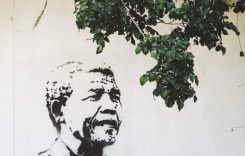And in the end, it is… Qatar that wins. The famous formula of the English striker Gary Lineker, in 1990, no longer designates Germany as the fatal winner of the great soccer confrontations. It almost applied to France, until the last minutes of the unprecedented final between Les Bleus and the Albiceleste. But the great sporting spectacle offered on Sunday, December 18, if it finally crowned the team led by Lionel Messi, has, as much by its dream casting as by its diabolical intensity, consecrated the success of Qatar, in an improbable role, that of organizer of a world championship of soccer impeccable in its functioning and innovative, because decentered from the West.
The sporting apotheosis of the Lusail stadium, by putting to the test, even sweeping away, the reluctance of the most ardent supporters of the boycott, has completed in a striking way the adventure started in 2008, when the rich gas state of the Gulf embarked on the adventure of a bid for the World Cup. Fourteen years later, the tiny country with no soccer culture is reaping the rewards of its hundreds of billions of dollars of investment in international soccer: Sunday’s final saw the world’s two biggest football stars, Lionel Messi and Kylian Mbappé, two star players from Paris Saint-Germain (PSG), a club that Emir Tamim Al Thani also bought in 2011.
Opacity
The emirate’s entry into the soccer business, originally a mixture of vision, intuition and audacity, has resulted in a triumph of soft power in the world: Qatar, once shunned by the West for its support of Brotherly Islam and its proximity to Iran, now shines as the organizer of a well-oiled sports mega-show where players from all five continents were represented and supporters from all countries were able to coexist thanks to a compromise between the specifications of the International Federation of Football (FIFA) and Arab symbolism. In the eyes of the Arab world, the World Cup allowed Qatar to compete with Western countries as the host of a great sporting competition, welcoming and festive, and to stage the solidarity of the entire region with the Palestinians.
This undeniable success of image, which the future will tell the sustainability, should obviously not hide all the dark sides of a World aberrant on the ecological level and on which weighs suspicions of corruption and human rights violations. The Qatari opacity remains total on the hundreds of fatal work accidents that have plunged the construction sites into mourning. The destination of the seven new stadiums, built with underpaid and invisible foreign labour, remains unclear.
The glitter of the sporting achievements cannot hide the resounding corruption scandal in Brussels, where several members of the European Parliament are suspected of having received huge sums of money from Qatar, nor the judicial investigation opened in Paris for “active and passive corruption” in connection with the awarding of the World Cup to the emirate. Until Gonzalo Montiel’s penalty kick on Sunday, which gave Argentina victory, the eyes of the whole world converged on Doha. This attention must not wane. Qatar’s global sporting success must be matched by continued vigilance over the use its leaders make of their wealth.










